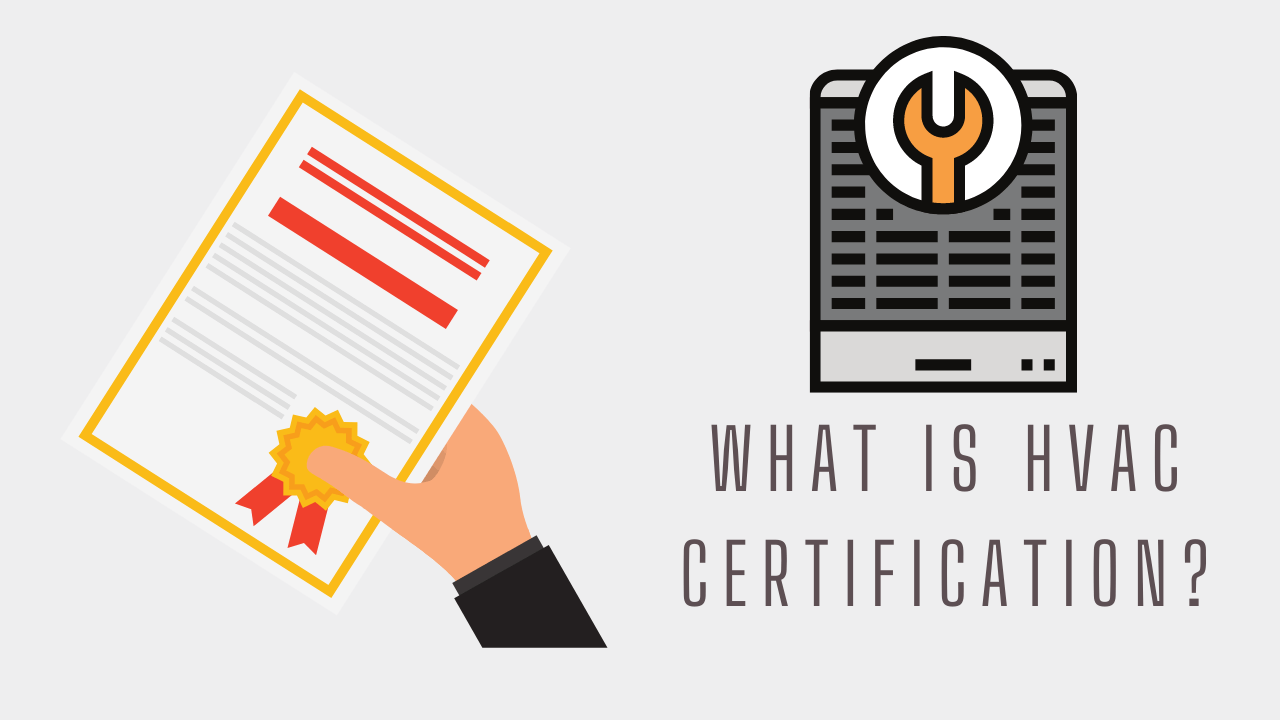You’re not alone if you don’t understand the difference between an HVAC license and certification. Most people are unaware of the differences between the two titles and which one is required to work in HVAC. We’ll look at the main distinctions in this essay to offer some much-needed light.
Our goal is for our readers to have a more precise grasp of the certification, what a license is and how they can tell if the HVAC professional they choose has the appropriate qualifications.
Obtaining heating, ventilation, and air conditioning certification can be an excellent approach to demonstrate one’s abilities to potential employers or clients.
Installing, repairing, and maintaining HVAC units in residential and commercial spaces and temperature control mechanisms are just a few of the skills that can be demonstrated with these credentials.
Table of Contents
HVAC Certificate Or Licensing Requirements
Because an HVAC license is gained after a person has completed his training program and earned his certification, it is reasonable to consider it post-graduate studies.
While this may appear to be an unnecessary step, it is essential to note that most states need candidates to complete a licensure exam before operating in the sector. This ensures reliability.
Candidates for a license must be at least 18 years old and fluent in English. All applicants must also have four years of warm-air heating experience, some of which you should be able to gain while completing your certification.
After passing the licensure exam and meeting all other conditions, the candidate is legally qualified to operate as an HVAC technician. They have the option of starting their own business, working with friends or family, or working for someone else.
Benefits Of HVAC Certification For The Technicians
Being a trained HVACR technician has its own set of benefits. Here are some of the most significant advantages of becoming certified:
- Understanding the science behind HVAC systems and the fundamental principles that govern them
- Develop a diverse set of abilities in HVAC and refrigeration
- Be able to assess air quality, determine humidity levels, and comprehend temperature control methods
- Get a leg up on other HVAC technicians in the market that are vying for the same position
- Take advantage of opportunities to work on large-scale projects and demonstrate your abilities
- Demonstrate to your clients and employers that you have the necessary theoretical and practical knowledge
HVAC Certification State Requirements
HVAC technicians must be licensed in each state. Regions that do not require state-wide certification include Indiana, New York and Wyoming. Almost every other state necessitates HVAC certification for technicians. Applicants must pass a written exam in states that require licensing.
As previously said, some states or regions may make it obligatory for an HVAC professional to hold a current HVAC certification. The requirements for obtaining an HVAC certification vary by state.
In certain circumstances, you’ll need to finish an HVAC program at a recognized trade school, while in others, you’ll need to have a few years of experience. You must also pass an exam covering local electrical codes and general HVAC topics to receive the certification.
Choose A Professional Provider For Certification And License
While you may come across several people who claim to assist you with your HVAC systems, you should always verify their credentials. The last thing you want is for someone to exacerbate the problem, forcing you to seek expert help later. If you want, you can inquire about the people in question’s qualifications and evidence.
There’s nothing wrong with seeking professional assurance, and those worth their salt will never hesitate to demonstrate their worth. Do not do business with HVAC contractors who do not have the necessary certification or license. Otherwise, it is a complete waste of time and money.
HVAC Certification Process
The processes required to become a qualified HVAC technician vary by state and expertise, and not all professionals will take the same route. However, the procedures below outline one standard route to becoming a qualified HVAC technician:
1) Get A High-School Diploma
The first step in seeking a job as an HVAC technician is to obtain a high school diploma. Make sure you are interested in mathematics and physics so that your foundations are strong. Successful HVAC technicians and contractors often excel in essential and compulsory classes such as math and physics.
Some people choose to volunteer or look for work in related sectors, which can teach them some of the empirical fundamentals of the discipline.
2) Choose Accredited HVAC Program
While candidates with substantial experience or an apprenticeship may be exempt from this phase in some states, many qualified technicians prefer to undergo traditional, classroom-based HVAC training at a community college or trade school.
These programs can be accredited by industry groups like HVAC Excellence or Partnership for Heating and Refrigeration Accreditation and provide entry-level service, design, and repair of the HVAC system. As part of their training, many HVAC programs incorporate Section 608 certification and preparation for additional industry certifications.
However, it totally depends on the technician to choose the desired period of the program.
3) Practical Training And Additional Certifications
Most certifications demand a minimum of one year of practical experience. So, you’ll need to work for an HVAC contractor to get on-the-job training. Some people who are job-ready HVAC schools incorporate the certification procedure as part of their training.
Final Words
Before operating independently in the field, many US states require an HVAC technician to be licensed. However, there are certain exceptions. Some states do not require a license, although the technician may still need a local or municipal license in these states.
All government policies are subject to change, so verify with your local regulatory authority for the most up-to-date requirements.





